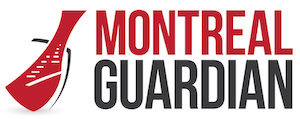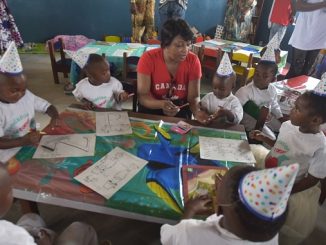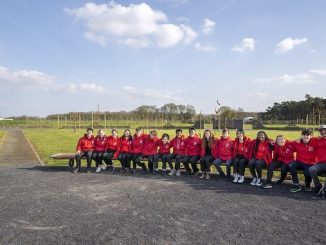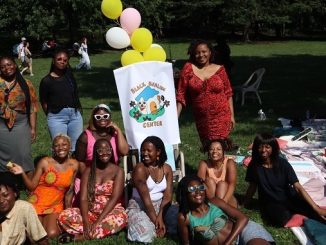The First Peoples Justice Center of Tiohtià:ke/Montreal (The Justice Center) provides culturally-adapted, holistic services for Indigenous community members who are involved with the justice and carceral systems and who are living in Tiohtià:ke, the unceded Territory of the Kanien’kehá:ka (Mohawk) Nation, known also as the Greater Montreal Area. got to speak with Ellen Filippelli, The Executive Director of The First Peoples Justice Center of Tiohtià:ke/Montreal, to find out more about them.
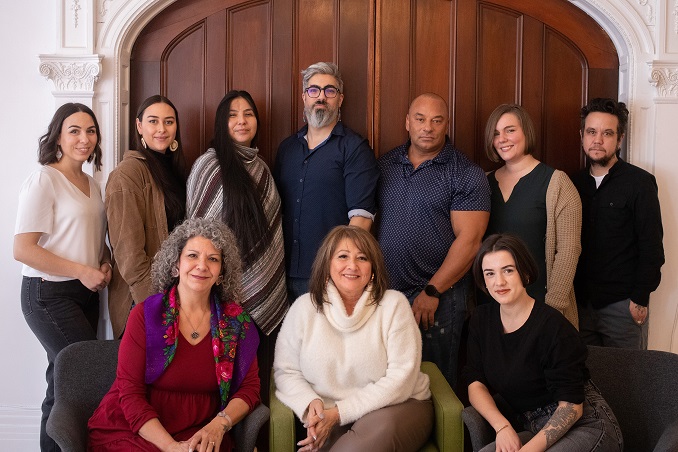
Describe your charity/non-profit/volunteer work in a few sentences.
The First Peoples Justice Center of Tiohtià:ke/Montreal (The Justice Center) provides culturally-adapted, holistic services for Indigenous community members who are involved with the justice and carceral systems and who are living in Tiohtià:ke, the unceded Territory of the Kanien’kehá:ka (Mohawk) Nation, known also as the Greater Montreal Area. The Justice Team provides several services, such as transition and reintegration support, restorative justice, victim support, alternative measures and mediation, Gladue reports, and aftercare.
Our vision is to have strong Indigenous communities that have access to community-led justice processes rooted in decolonization, healing, respect and Indigenous law. This falls in line with our mission to support, inform and empower Indigenous people as they navigate their way through the colonial justice system and to offer culturally appropriate justice services.
What problem does it aim to solve?
Our work is directly informed by the realities of the community members we support. We seek to address systemic issues such as the overrepresentation of Indigenous in detention through advocacy and education, and, throughout program development and delivery, we promote structural change within the justice and carceral systems to move towards initiatives led by and for Indigenous people to help reduce incarceration and recidivism rates. In June last year, the Ministry of Justice of Canada held a news conference announcing their support for the dedication and great efforts provided by the Justice Center to address the systemic issues in the city’s criminal justice system.
When did it all start?
The pivotal moment that set everything in motion was the report by the Montreal Urban Aboriginal Community Strategy NETWORK in 2013 which highlighted the lack of continuum services for the Indigenous community members in conflict with the law. The report called attention to the absence of alternatives and of a community approach to justice based on Indigenous principles and culture. This sparked further decisions within a committee harbouring a collective idea and a strong vision to make a true impact that would permanently improve accessibility and representation for Indigenous peoples on Turtle Island (Canada) as they navigate the justice system. In 2017, the ideas in the report became a reality with the establishment of the First Peoples Justice Center of Tiohtià:ke/Montreal and with the commencement of our service provision in 2018.
What was the situation like for the Justice Center in the beginning?
The Justice Center began its journey in a small one-room office nestled within The Native Friendship Center of Montreal building. The pioneering work and efforts of the Justice Center were at times challenging and, like any young organization, we experienced our share of growing pains. Over the years, there was a challenge in finding and maintaining Indigenous leadership, but the one thing that remained steadfast under pressure and never faltered was the mission and vision of the Justice Center. Our strong belief and desire to expand and create a safe space for our Indigenous brothers and sisters in Tiohtià:ke have made for lasting success.
How has it changed since?
The Justice Team has grown almost twice in size in less than a year, making up a solid team of ten. In addition to the existing justice services, we have expanded to offer Gladue writing and aftercare services. We also added a cultural room offering services to individuals seeking aid from an Elder, cultural/medicine practitioner, spiritual healer, counsellor or just when in need of a tranquil safe space to reflect. Our inevitable growth has had us move from our one-room office to a beautiful space with multiple floors and much room that will sustain our vision to expand upwards and outwards in the future.
What more needs to be done?
As a nonprofit organization, The Justice Center requires our funding partners to increase the core funding allocated as we increase and expand services to urban Indigenous people. As outlined in the report of the Commissions Viens, there is a real need for sustained ongoing funding with reasonable reporting requirements.
A major portion of the Justice Center’s service base are individuals experiencing homelessness and precarity. It is imperative that our services be located in a central area for easy accessibility.
With the increase of the commercial real estate market in Montreal along with gentrification, nonprofits are subject to expensive rental costs. We believe that the City of Montreal has a role in ensuring that the community sector can flourish in buildings that they own. This is an important step towards reconciliation, as Indigenous organizations move towards autonomy and the decolonization of spaces.
In line with this is our goal to provide a safe Indigenous space for Assisted Parole Hearings. Countless testimonies across Turtle Island have been made indicating how Indigenous people are subjected to systemic and structural racism when going in front of the Parole Board. For some, this causes a refusal of parole, undermining the right to an equal and just process. We have identified this injustice and are working with Correction Services Canada towards holding hearings in a space conducive to a more holistic healing environment.
How can our readers help?
We encourage you to learn more about Indigenous history, current realities, and traditions. Through education, it will help break down the many barriers between Indigenous and non-Indigenous people and the misconceptions that we face on a daily basis. As our community is healing from decades of assimilation policies, it is important for individuals to deepen their understanding of the impacts of intergenerational trauma and restorative justice measures as alternatives to criminalization.
In addition, as a charity, the support we receive from donations from individuals and private funders is instrumental in effectively realizing our mission and vision. Anyone can donate to our organization using this link. No donation is too small or too large — all financial support is welcomed and greatly appreciated!
Do you have any events coming up?
We are planning a social event in our new building and a celebration BBQ across the street at St. Louis Square Park. This will be the perfect opportunity for newcomers to pass by to visit, talk to the team and learn more about Indigenous Justice in a friendly and casual environment.
Join us: Thursday, June 22nd, 2023. 3500 Av. Laval, Montreal, QC. H2X 3C8. 10 am to 3:30 pm. The event is free and we welcome donations.
Where can we follow you?
Interested individuals can follow us on Facebook and on our website.
PAY IT FORWARD: What is an awesome local charity that you love?
The First Peoples Justice Center of Tiohtià:ke/Montreal has always maintained a strong alliance with The Native Friendship Center of Montreal. Their encouragement for our success has been invaluable, and their team is amazing and always prepared to get involved for the betterment of our community. Without hesitation, pay it forward to them!
